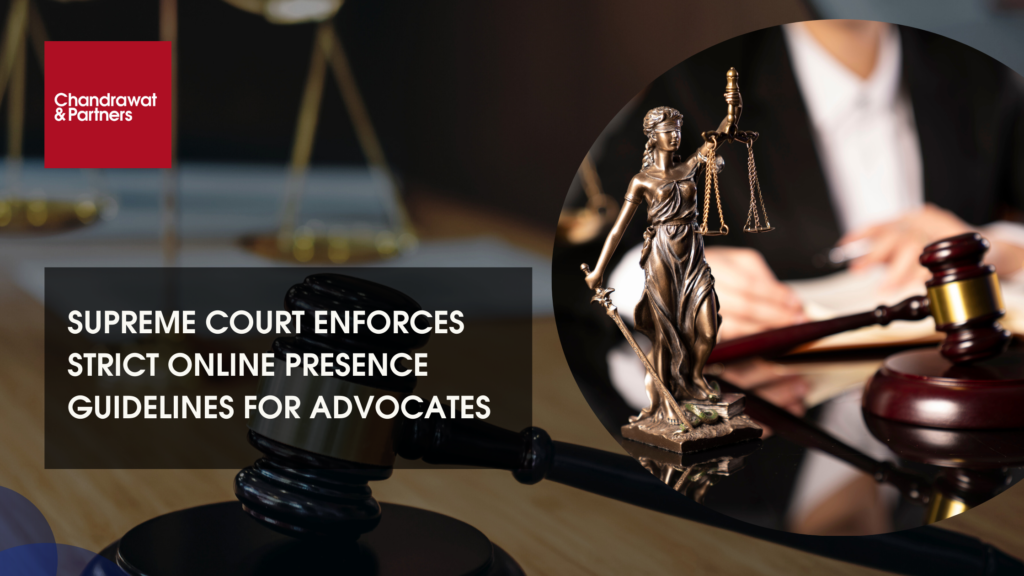Home > Recent Judgements > Supreme Court Enforces Strict Online Presence Guidelines For Advocates
Sept 04, 2024

SUPREME COURT ENFORCES STRICT ONLINE PRESENCE GUIDELINES FOR ADVOCATES
The Supreme Court of India recently in the case of Baidya Nath Choudhary vs. Dr. Sree Surendra Kumar Singh, issued a directive emphasizing the ethical practice of marking the presence of advocates during court proceedings. This guideline was prompted by an incident where an Advocate-on-Record (AoR) was neither physically nor virtually present during a hearing but requested another advocate to mark their presence through an online portal. The Court found this practice misleading and unethical.
SUPREME COURT’s DIRECTIVE
The two Judge Bench of the Supreme Court mandates that only those advocates who are physically present in the courtroom, participating virtually or actively assisting during proceedings shall have their presence duly recorded. It strictly prohibits the marking of attendance for advocates who are not engaged in any capacity including those merely associated with the advocate’s office. This directive is intended to preserve the integrity of court records by ensuring that only individuals genuinely participating in the proceedings are officially recognized as present.
CORE ASPECTS OF THE DIRECTIVE
The Court highlighted the misuse of marking the presence of advocates who were not attending the proceedings in any capacity, which can distort the actual representation of advocates involved in cases. Advocates-on-Record (AoRs) have a duty to accurately report the presence of advocates and the existing practice of marking absent advocates as present was deemed unacceptable by the Court.
The Supreme Court emphasized that marking false presence could impact various aspects of legal practice, such as unfairly considering advocates for benefits like chamber allotments and senior advocate designations, which are typically influenced by the frequency of their court appearances. The Court also requested the Supreme Court Bar Association, the Supreme Court Advocates-on-Record Association and Presidents of respective Bar Associations to ensure compliance with this directive and take corrective actions where necessary.
NOTABLE IMPLICATIONS ON THE LEGAL FRATERNITY
The Supreme Court’s directive profoundly affects the legal profession by reinforcing ethical conduct and ensuring that court records accurately reflect advocate participation. This measure curbs the misuse of digital platforms, promoting fairness and merit-based distribution of professional opportunities. The directive maintains the credibility of judicial proceedings and fosters a culture of accountability and integrity within the legal community by recognizing only those who are genuinely present or assisting.
RATIONALE BEHIND SUPREME COURT’S DIRECTIVE
The directive addresses the misuse of digital platforms that can lead to unethical practices. It ensures that digital advancements in the judiciary are used responsibly by clearly defining acceptable presence during court proceedings. This approach prevents the ambiguities and professional misconduct. It also protects the interest of diligent advocates and upholds judicial accountability by maintaining accurate records and enhancing transparency.
KEY INSIGHTS
The Supreme Court’s directive marks a pivotal advancement in promoting ethical practices within the legal profession, safeguarding the integrity of court records and ensuring fairness. By emphasizing the necessity of genuine participation in court proceedings, it aims to curb any potential misuse of technological advancements in the legal field. This initiative is poised to cultivate a culture of accountability and integrity, ultimately benefiting both the legal community and the justice system at large.
For more information or queries, please email us at
enquiries@chandrawatpartners.com




